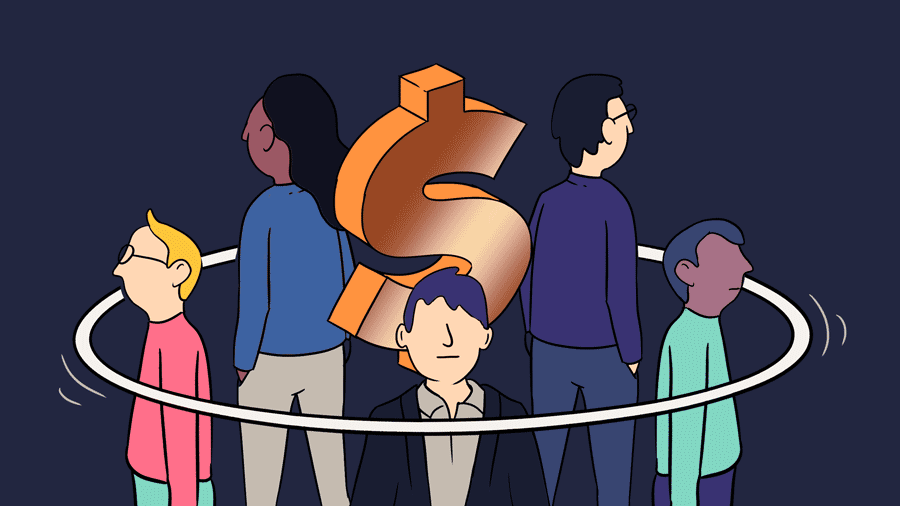By Carey Smith
A few years back, I wrote an article titled, “700 Million Reasons to Question Everything Venture Capitalists Do.” Why 700 million? Because that was DoorDash’s “disappointing” valuation at the time. It was seen as an indication that VCs might finally be coming to their senses after a year of seemingly round-the-clock unicorn production — 10 a month — that ended with a $9 billion bang: the Theranos blood-testing debacle.
Subscribe to the Crunchbase Daily
Fast-forward five years: DoorDash is trading publicly and doing just fine. Theranos is remembered as a modern “Emperor’s New Clothes.” And those old “irrational” valuations? They seem almost quaint. A new unicorn is now being born every day, and $700 million valuations really are a dime a dozen. Some people are talking about another startup bubble: It’s getting to be like 1999—they say.
I say VCs have always been off their rockers, and this year is no different. The VC industry is (flimsily) built on bubbles, and their investments have always had a notoriously low success rate. It’s just that they now have even more ungodly amounts of money to play with, thanks to the dismal returns available elsewhere. And thanks to the booming market, they’re saddled with great expectations. Gee, it’s almost possible to feel sorry for them.
As founder of fan and light maker Big Ass Fans, which I bootstrapped entirely, I railed for years against VCs’ “money is everything” mentality and their practice of jumping on any bandwagon, no matter how rickety.

At the time, however, I merely read about their shenanigans and railed; I was like Statler and Waldorf from “The Muppet Show” who heckled from the balcony. Then, four years ago I sold the business for $500 million, and using a chunk of those proceeds—not other people’s money—started a new company that invests in startups and advises founders. As a result, I come in direct contact nearly every day with the fallout from VCs’ errant ways.
At our office, we tell founders things they’re not used to hearing: That high valuations can be the kiss of death—they inevitably lead to down rounds and less founder equity; that a strong business plan from the get-go is essential; and that if everybody’s doing it, you probably shouldn’t, etc., etc.
Some founders listen, some don’t. That’s to be expected. Every one of them is smart, but many have already been brainwashed into believing the hype that sustains both the VC world and most media outlets that cover it.
In defense of VCs—I never imagined I’d say that—they can’t help fueling the frenzy. Theirs is an industry that relies on bubbles for its existence, like the star-nosed mole that blows bubbles underwater to pick up scents.
The ranks of most VC firms are filled with bankers. Finance is all they understand—not business, not tech, not even “fintech,” the latest craze. So they chase dreams in search of a big payday because lots of wealthy schmucks—excuse me, investors—have entrusted them with obscene amounts of money. Who can blame them for betting it on whatever is hot at the moment?
The investors don’t; most are happy to be where the action is. After all, it gives them something to brag about at the next cocktail party. They accept that the vast majority of VC-backed startups will fail. It’s part of the game, and because those wealthy investors can afford the losses, no one’s left holding the bag.
The one good thing about the whole crazy system is that the cash those failing startups burn through isn’t going up in smoke. It’s going into the pockets of people hired by the startups while they’re still flush: Employees, and contractors, and plumbers and window-washers—and all of them need it much more than a VC’s well-heeled clients.
Every day, we all spend money on the wrong things, and VCs are no different. They just have so much more money to spend. Until something happens to change that, they’ll be forever blowing bubbles. Bigger and bigger bubbles.
Entrepreneur Carey Smith founded Big Ass Fans in 1999, bootstrapping the fan and light maker to nearly $300 million in sales and more than 1,000 employees. Ready for a new challenge, he sold the company in 2017 for $500 million then founded Unorthodox Ventures, his Austin-based investment company that helps small companies with big potential create enduring, endearing brands.
Illustration: Li-Anne Dias.

Stay up to date with recent funding rounds, acquisitions, and more with the Crunchbase Daily.


![Illustration of a guy watering plants with a blocked hose - Global [Dom Guzman]](https://news.crunchbase.com/wp-content/uploads/quarterly-global-3-300x168.jpg)
67.1K Followers